In 2019, the Institute welcomed Jonathan D. Sarna to share his research on Cora Wilburn, the first Jewish novelist in America. The sold-out event included students, faculty, and members of the public. The lecture was presented in partnership with the Naomi Foundation, whose work is to advance the teaching and learning of Yiddish, particularly in academic and scholarly settings. Nadav Kadar and Prof. Jeremy Dauber delivered introductory remarks.
IIJS@Home: Poles, Jews and the Myth of Trafficking of Women
The Institute for Israel and Jewish Studies hosted a conversation with Aleksandra Jakubczak, Ph.D. candidate in History at Columbia University and author of Poles, Jews and the Myth of Trafficking of Women, in conversation with Rebecca Kobrin, the co-director of the Institute for Israel and Jewish Studies and Russell and Bettina Knapp Associate Professor of American Jewish History, Department of History, Columbia University and Małgorzata Mazurek, Associate Professor of Polish Studies, Department of History, Columbia.
Holocaust Studies Fellowship: A Student’s Perspective
By Ingrid Romero
In January 2019, I came across a video where multiple individuals on the street were asked if they knew about the Holocaust: What group of people did the Nazis target? What is Auschwitz? How many Jews were killed during the Holocaust? To my surprise, only one person had a vague idea about the Holocaust, the rest answered that Auschwitz was a country, or confused the Holocaust with the word hologram (yes, a three-dimensional image formed by the interference of light beams from a laser or other coherent light source). At the time I knew that if had been asked those questions I would’ve been just as ignorant and embarrassed as those who participated in that interview.
Since I was curious, I decided to Google the Holocaust and to be honest the result of my search was depressing, too deep to understand and quite overwhelming. Once I saw the images I had to stop. There was so much that I could not comprehend. Why did this happen? Why didn’t any other country help? And many other questions.
To give you a little background I was born in Colombia and moved to the States at 19. To say the least, nobody ever talks about the Holocaust or genocide in my country. World Wars I and II were never taught in History class and we lived in a convenient state of willful ignorance. I recently decided to complete my undergraduate education in Architecture at Columbia’s School of General Studies. When I heard that the Institute for Israel and Jewish Studies was offering a class on Holocaust Literature, I knew immediately this was my opportunity to learn about the Holocaust though a list of curated texts, novels, poems and songs. We were fortunate to be guided by Prof. Jeremy Dauber, a true scholar in Jewish Literature. The class of 15 students from various backgrounds spent the whole hour and 50 minutes engaged in honest and interesting discussion about the readings.
This class taught me through the lens of literature, music, and poems more than I could ever grasp from independent research. I wish the Holocaust was taught more regularly at Columbia. Prof. Dauber offered and opportunity to ask very difficult questions that I would have never been able to explore without his guidance.
As an Architecture student, the vision of forced labor and human sacrifice to achieve Nazi architectural goals, by means of oppression and genocide of the European Jewish population, still haunts me to this very moment. The main goal of my final research paper was to analyze survivors’ testimony and data through the means of architectural digital retracing of construction, to better understand the horrors of the Holocaust through the lens of architecture, forced labor and genocide. Events and ideas so far-fetched and agonizing that we as a society and in my case, a future architect, must ensure they will not happen ever again.
Jewish prisoners, both men and women, had different tasks in the building process, nonetheless they both experienced extreme physical oppression, which resulted in the premature death of the vast majority. According to survivors, the last year of the war (1945) was spent on an endless construction cycle. The construction period between April, 1943 and May, 1944 is often omitted by scholars.
Architects have the responsibility to envision and create spaces that improve the quality of life of society: spaces for working, education, housing, and leisure. Incongruently, the architecture of the Holocaust had the opposite intention, its goal was to use the forced labor of Jewish prisoners while carrying out their mass murder. My research about architecture during the Holocaust has served to show me, the detrimental effects that a vocation or a field of study can have on humanity if used for evil…many years of hard study, schooling, careful planning and design gone awry.
I was able to attend this class thanks to the generosity of a private donor. From the bottom of my heart I would like to thank this person for the invaluable opportunity to learn about the Holocaust and become more aware. It is imperative that we educate our younger generations. By understanding our history, we can make sure to never repeat the atrocities done to the Jewish people in Europe or anywhere else. Learning about the Holocaust and the resilience of survivors gives me hope that no matter how hard your circumstances are, it is up to you to be a survivor.
Ingrid Romero is a third-year architecture student at the School of General Studies.
Congratulations Class of 2020!
On May 20, the Institute celebrated the work of our students and faculty, and specifically the work of the 2020 graduates.
Congratulations to Jewish Studies M.A. Graduates Walter Francis, Karen Gritz, Cecile Guigui and Jordan Katz on her Ph.D. in History.
Spring 2020 Course: Topics in Jewish Studies
A group of IIJS M.A., Ph.D., and advanced undergraduate students took part in our new course this semester on the history, theory, and methodology of Jewish Studies. Topics in Jewish Studies was taught by Dr. Isabelle Levy and will be taught again in Fall 2020. Despite the unprecedented circumstances they had an extremely productive semester. Students engaged in weekly discussions of various topics in Jewish Studies—ranging from historiography in the medieval Jewish world to Jewish Studies amid Gender Studies. Institute faculty members generously agreed to visit the class to share insights into the field of Jewish Studies, and Norman E. Alexander Jewish Studies Librarian Michelle Chesner presented treasures of the Jewish Studies book collection to the class at The Rare Book and Manuscript Library in early March.
Students designed original syllabi on fascinating topics, including a seminar by Arielle Rivera Korman (Ph.D. candidate in History) on Jews of Color and a course by Hailey Dobin (Barnard ’21) for high school students that takes a nuanced approach to Jewish cultures. Students also wrote grant proposals, one of which has secured funding: Jewish Studies M.A. student Solomon Mengesha has begun founding a non-profit devoted to mapping the oral and material culture of the Beta Israel, the Jews of Ethiopia. Students also reflected on ways in which course materials will inform their research going forward: Yakov Ellenbogen (Ph.D. candidate in History) reflected on the place of post-colonial and gender theory in his work on Disability Studies/Jewish Studies and, inspired by Professor Rebecca Kobrin’s visit to class, Adam Gelman (Jewish Studies, M.A. student) is considering the place of Women and Gender Studies in his work on Jewish immigration to the United States.
The 2020-2021 Rabin-Shvidler Joint Post-Doctoral Fellowship and Baron New Voices in Jewish Studies Award
Columbia University’s Institute for Israel and Jewish Studies and Fordham University’s Center for Jewish Studies are delighted to announce that the joint post-doctoral fellowship in Jewish Studies for the 2020-2021 academic year will be held by Alon Tam (Ph.D., University of Pennsylvania, 2018), whose dissertation investigated the urban, social, and political history of Cairo’s coffeehouses, from the mid-19th to the early 20th century. His presence will add new dimensions to the teaching of modern Jewish history across a broad spectrum of interests. We look forward to welcoming him to our growing joint community of scholars.
This fellowship has been made possible by the Stanley A. and Barbara B. Rabin Postdoctoral Fellowship Fund at Columbia University and the Eugene Shvidler Gift Fund at Fordham University.
***
Baron New Voices in Jewish Studies Award
We are also delighted to announce that the winners of the Baron New Voices in Jewish Studies Award are Rebekka Grossmann (Ph.D., Hebrew University); Pratima Gopalakrishnan (Ph.D., Yale University); and Roy Holler (Ph.D., Indiana University, Bloomington). Rebekka Grossmann explores questions of migration and national belonging in Palestine through photography. Roy Holler researches the phenomenon of passing in comparative context. Pratima Gopalakrishnan’s work examines domestic life in late antiquity. All recipients demonstrate the impressive vibrancy of scholarship being done by the next generation of Jewish Studies scholars. We will be welcoming them to our campuses in the coming academic year.
Spring 2020 Magazine
Please take a moment to read our Spring 2020 magazine. Highlights include:
an essay about plagues past and the Jewish community.
profiles of our students and faculty.
a peek into the Norman E. Alexander Jewish Studies Library Collection.
and more.
Institute in the News
Yale University Press published The Posen Library of Jewish Culture and Civilization, Volume 6: Confronting Modernity, 1750-1880, edited by Prof. Elisheva Carlebach. This volume covers a momentous period, described by Carlebach as a time “in which every aspect of Jewish life underwent the most profound changes to have occurred since antiquity.” The Posen Library of Jewish Culture and Civilization is comprised of The Posen Digital Library (PDL), available at posenlibrary.com, and a 10-volume print anthology of Jewish culture.
Read Prof. Clémence Boulouque’s New York Times book review of Norman Lebrecht’s Genius & Anxiety: How Jews Changed the World, 1847-1947.
Francine Klagsburn, author of Lioness: Golda Meir and the Nation of Israel, shared her thoughts on the Institute’s conference History and Memory: The Legacy of Yosef H. Yerushalmi in the New Jersey Jewish News.
Tablet Magazine shared our upcoming screening of The Pawnbroker followed by a Q&A with Prof. Maura Spiegel.
History and Memory: The Legacy of Yosef H. Yerushalmi
On Sunday, December 1, 2019, the Institute welcomed over 350 individuals to History and Memory: The Legacy of Yosef H. Yerushalmi, a conference created to mark the 10th anniversary of Prof. Yerushalmi’s passing.
Among the presenters and participants were his former students, the current leaders in the field of Jewish Studies. The opening remarks were made by Pierre Birnbaum and a keynote was delivered by Sir Simon Schama.
The day was filled with reminiscing on personal memories of the man, while expounding upon his profound legacy and indelible mark on the way Jewish History is studied. Francine Klagsburn, author of Lioness: Golda Meir and the Nation of Israel, shared her thoughts on the Institute’s conference History and Memory: The Legacy of Yosef H. Yerushalmi in the New Jersey Jewish News.
Below is the schedule of the day, along with a portion of the lectures presented.
1:00 pm - Welcoming Remarks - Elisheva Carlebach
Introduction to Conference- Michael Stanislawski
Opening Remarks - Pierre Birnbaum
Between Hope and Despair: Yosef Yerushalmi’s Vision of the Vertical Alliance
1:30 - 3:00 pm - "Yerushalmi The Historian" moderated by Lois Dubin
Edward Fram: Yosef Yerushalmi the Historian as Teacher and Advisor
Benjamin Gampel:The Royal Image of Yosef Yerushalmi
Marina Rustow: Yerushalmi and the Historical Olfactory
3:30 - 5:00 pm - "Narrative, History, and Yerushalmi" moderated by Jonathan Karp
Olga Litvak: No Consolation! Isaac Babel Declares War on Jewish Time
Nancy Sinkoff: Still Asking, What is the Use of Jewish History
Magda Teter: Following Yerushalmi’s Sephardic Paper Trail
6:30 - 8:00 pm - Keynote address by Sir Simon Schama
Selective Memory: Yerushalmi and the Tension Between Remembrance and Forgetting
Faculty in the News: Bialystock and Rhodes
Join Prof. Rebecca Kobrin at Ramapo College on November 26 for “Competing Diasporas, Shifting Centers: Bialystok’s Jews in the Age of World Wars.”
Los Corassones Avlan, a pop-up installation at the Primo Levi Center and co-curated by Dr. Isabelle Levy was featured in The New York Times and in numerous Italian publications including La Voce di New York, La Stampa, and Ansa.it.
October at the Institute
October was filled with exciting events at the Institute.
On October 16, we welcomed Prof. Paula Fredriksen to speak about her latest book, When Christians Were Jews: The First Generation.
On October 30, the IIJS and CUNY Graduate Center co-hosted a conference titled Jewish Ghosts: Haunting and the Haunted in Literature and Culture and a public lecture with Jonathan Boyarin on The Jewish Dead in Literature and Lore. Students, scholars, and members of the public explored the world of the Jewish dead from the Talmud to Fiddler.
Faculty in the News: Jewish Life in Rhodes
Adjunct Lecturer Isabelle Levy collaborated on an exhibition titled Los Corassones Avlan: Conversations on Jewish Life on the Island of Rhodes. The project is a collaboration between Kehila Kedosha Janina, the American Sephardi Federation, and Centro Primo Levi. The exhibit at 148 West 4th Street runs through November 24 is free and open to the public. For more information visit http://primolevicenter.org/.
Prof. Jeremy Dauber on his newest book, what he's working on, and who he'd invite to a dinner party.
Prof. Rebecca Kobrin lectured on the legacy of Jewish immigrants at the New City Jewish Center. Read more here.








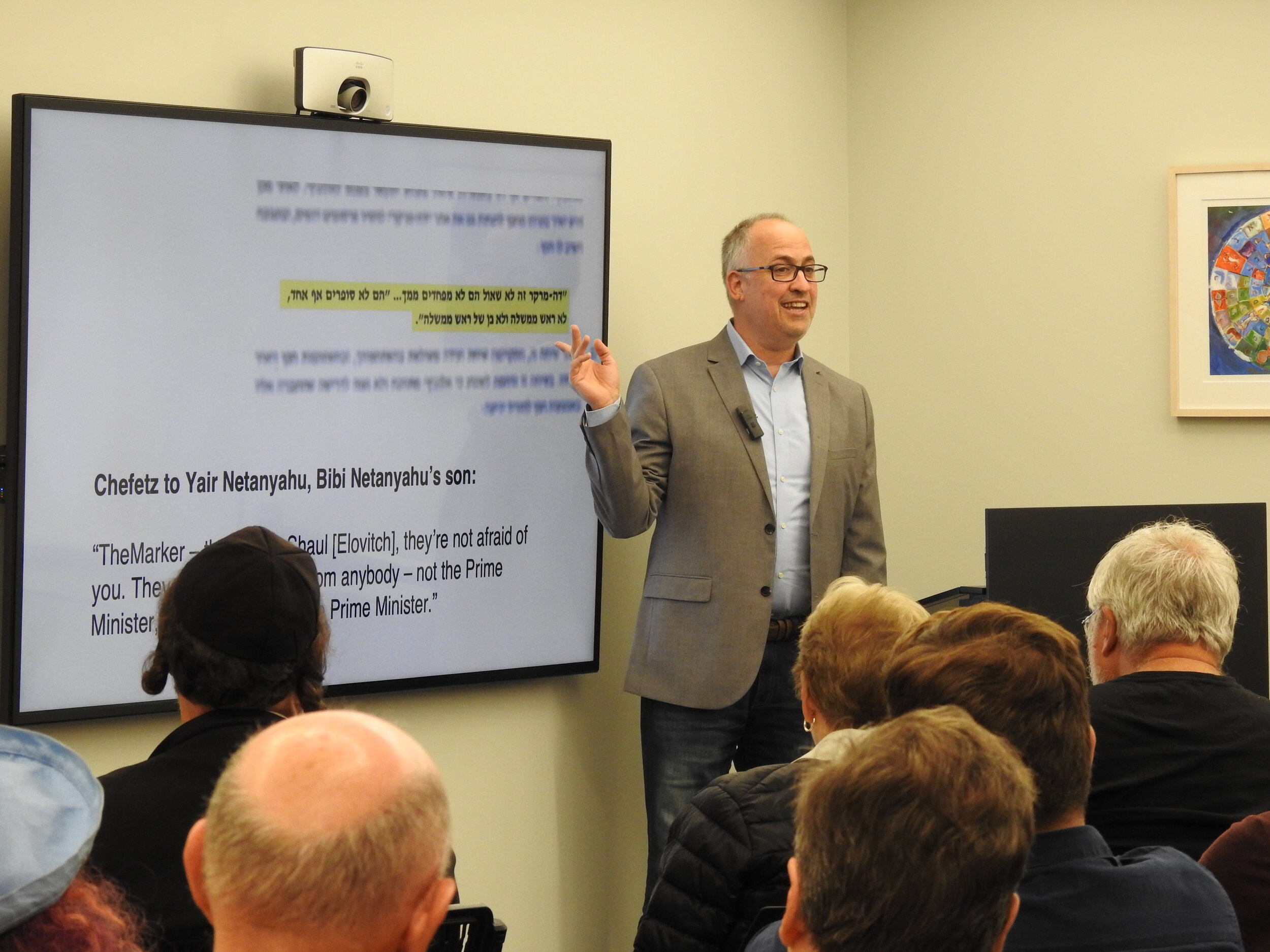
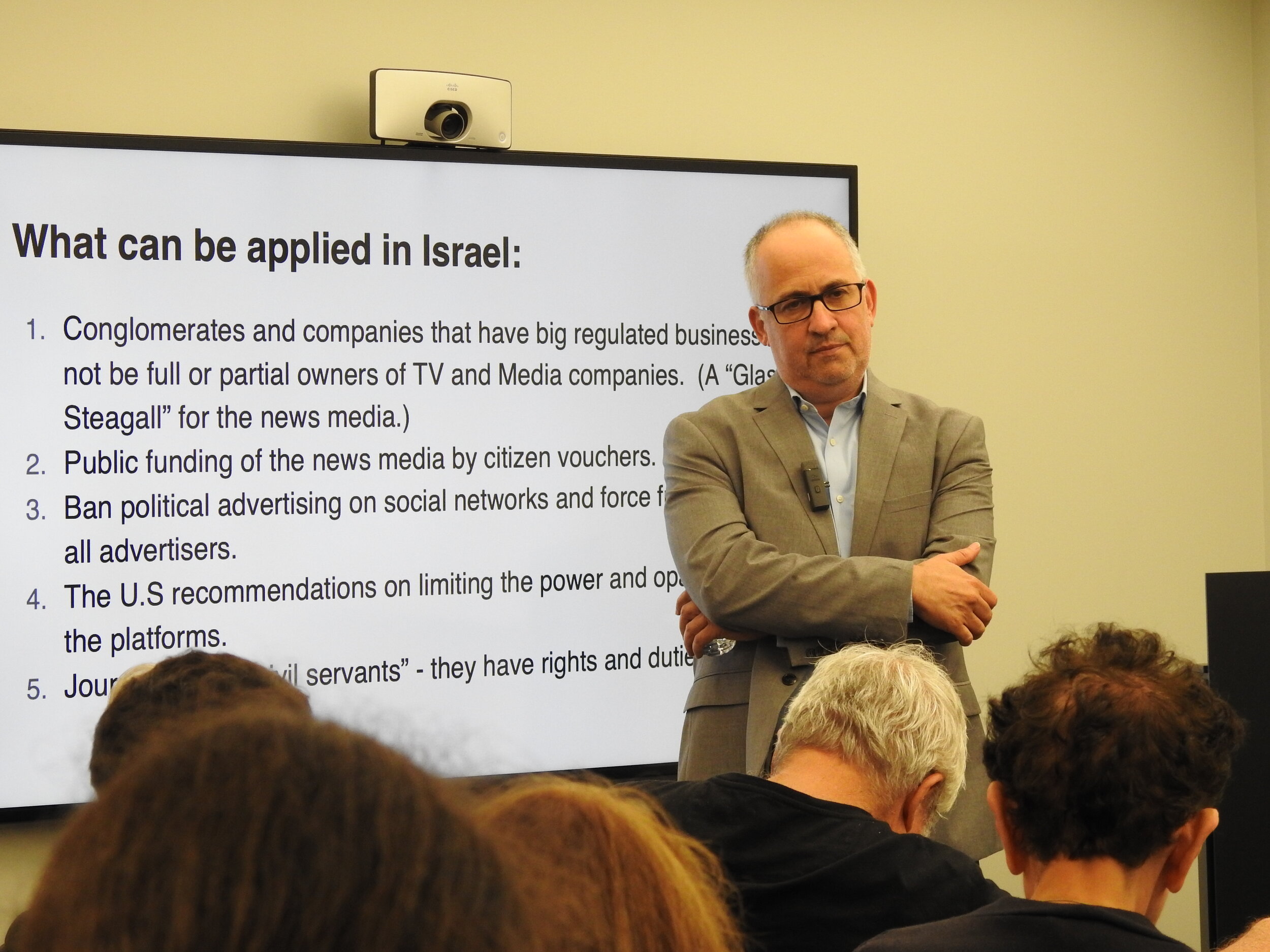

September at the Institute
This month, the Institute had the pleasure of welcoming two different speakers to present talks attended by both students and members of the public.
Pamela Nadell, author of America’s Jewish Women: A History from Colonial Times to Today, spoke on Monday, September 23, about the history of Jewish women in America and their involvement in shaping modern notions of Jewish culture and in fighting for suffrage, trade unions, civil rights, and Jewish rights. Nadell highlighted the lives of particularly historically significant Jewish women over the course of America’s history, and how their Jewishness affected their lives--including poet Emma Lazarus, and justice Ruth Bader Ginsberg.
On Tuesday, September 24, the Institute hosted The Political Economy of the News Media in Israel, led by Israeli journalist and clinical professor at the University of Chicago, Guy Rolnik. Rolnik expounded on the relationship between elected politicians and the news media in Israel--and how deals are struck to give specific papers and websites an edge over their competition in exchange for positive media coverage of certain politicians. Rolnik also met with Undergraduate Israel Fellows to discuss the intersection between the economy and media in Israel.
The Institute also hosted its first Young Alumni Dinner. Prof. Rebecca Kobrin gave a lecture titled 'Forging 'The American Jewish Lobby:' Jews and the Politics of US Immigration, 1898-1965.'
Welcome Back to the Institute
The past few weeks the Institute has been brimming with activities. On Friday, September 6, we welcomed 27 undergraduates for a Welcome Back Brunch to learn about classes, fellowships, and public events open to students. On Thursday, September 12, the Institute welcomed back our faculty and graduate students. Ph.D. candidates Lynton Lees and Ishai Mishory shared their summer experiences conducting research at archives in the UK and Turkey, respectively.
List of Jewish families on the Lower East Side
Summer in the Stacks
It’s been a busy summer in the Judaica collections at the Rare Book and Manuscript Library! Many collections were processed and are now available for use, thanks to the efforts of some fantastic students. This post, by Yoav Varadi, is the first of a series describing some of the work on our collections this summer. Read more here.
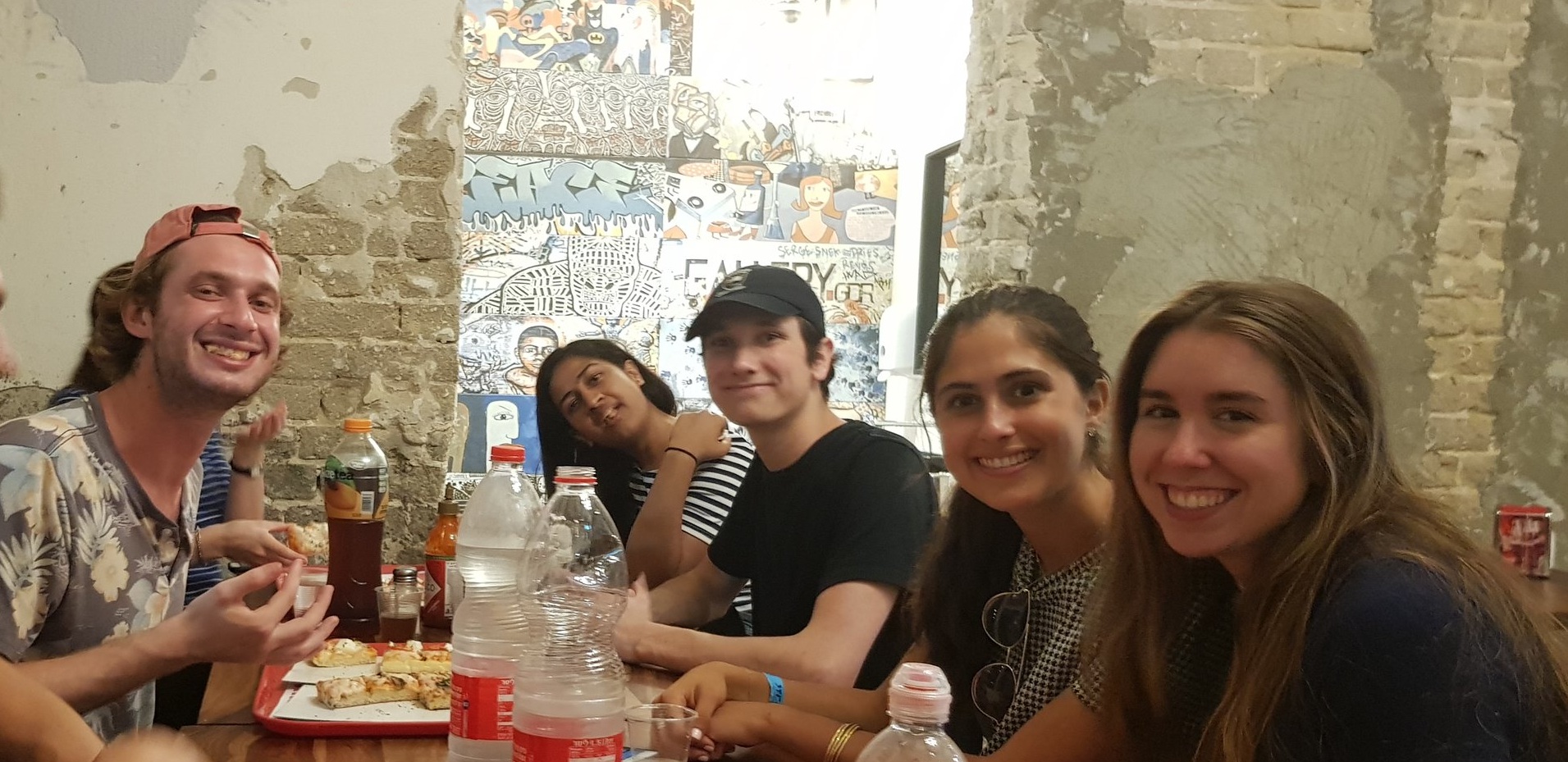

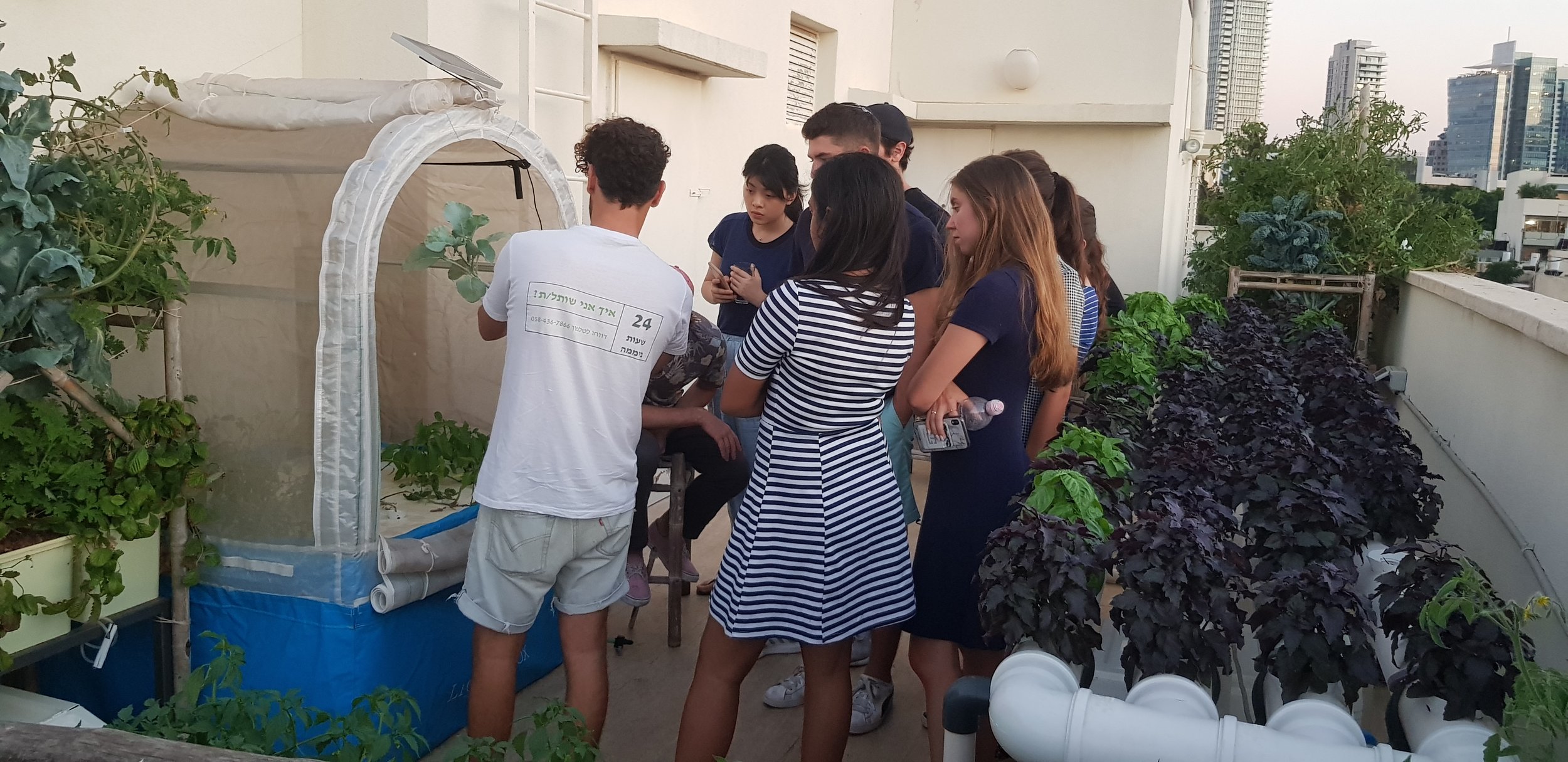
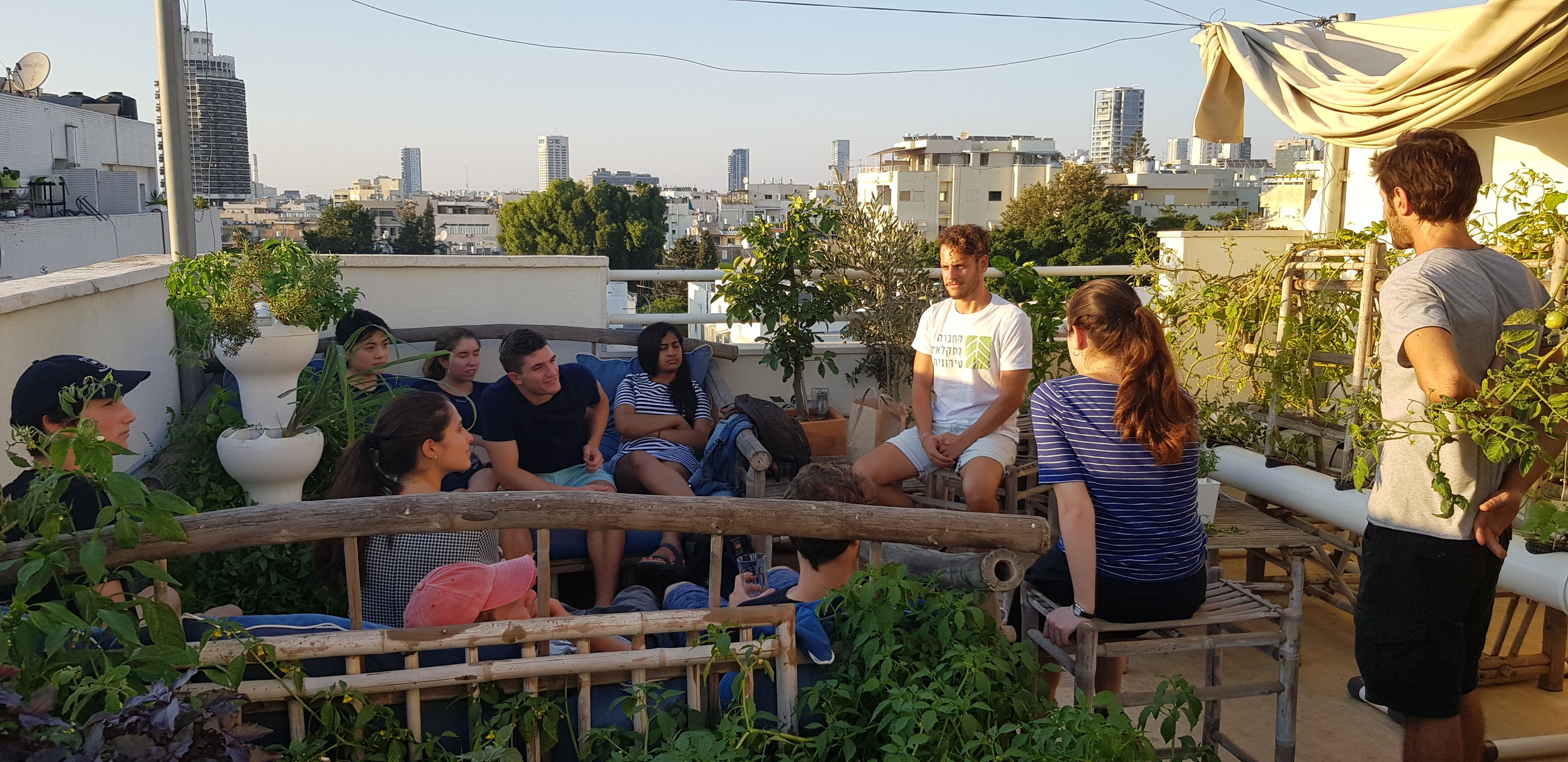
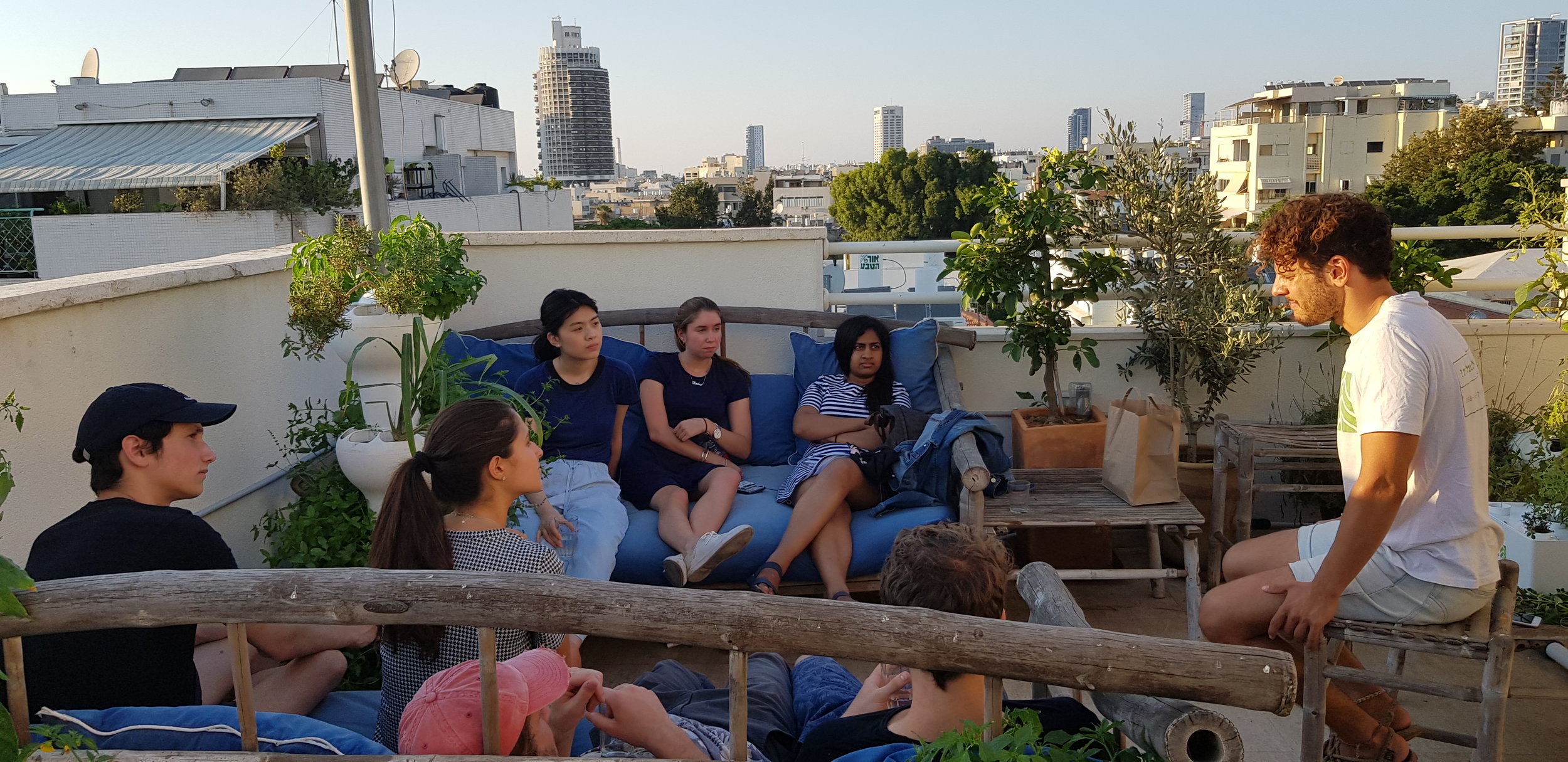
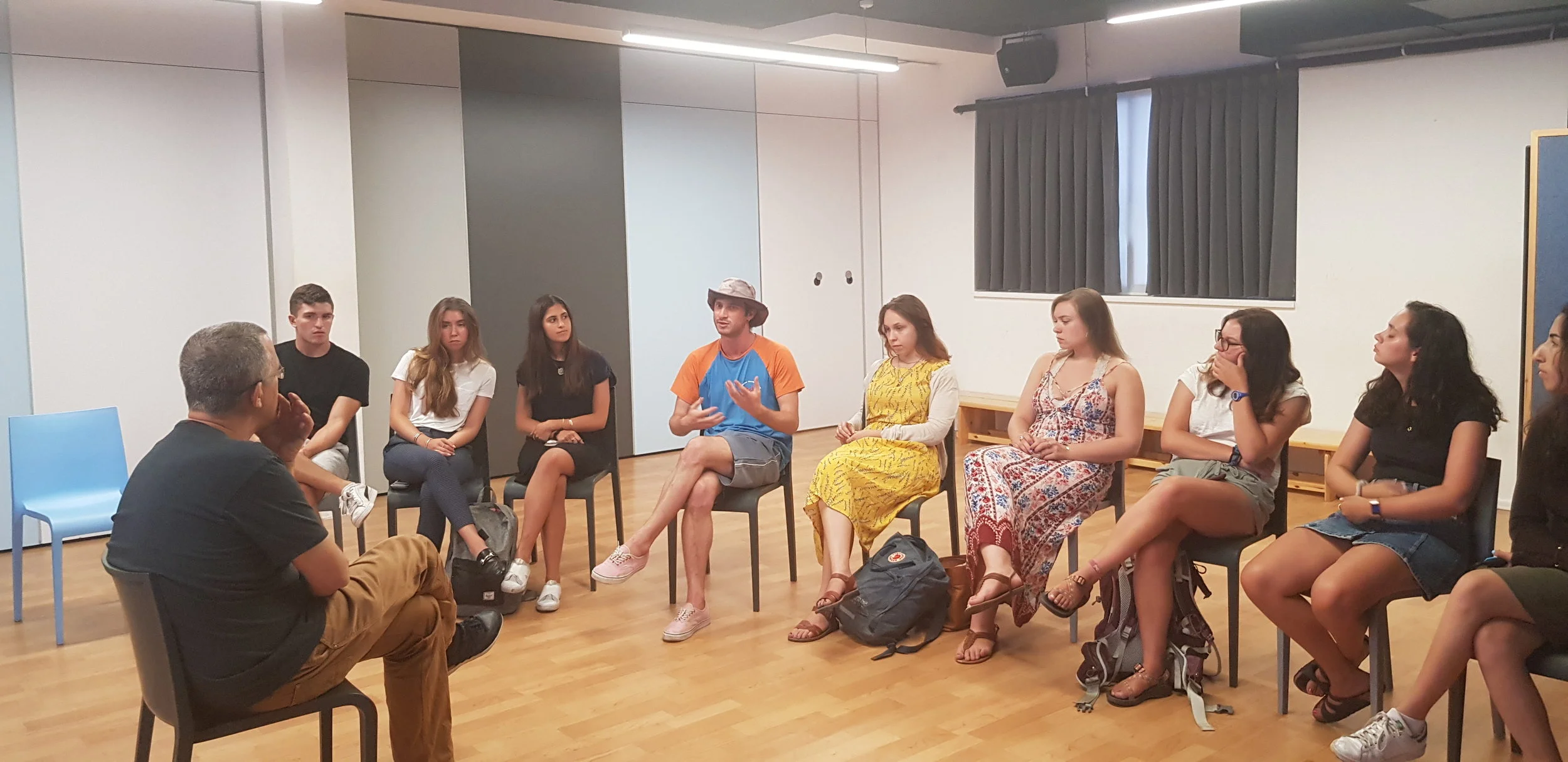
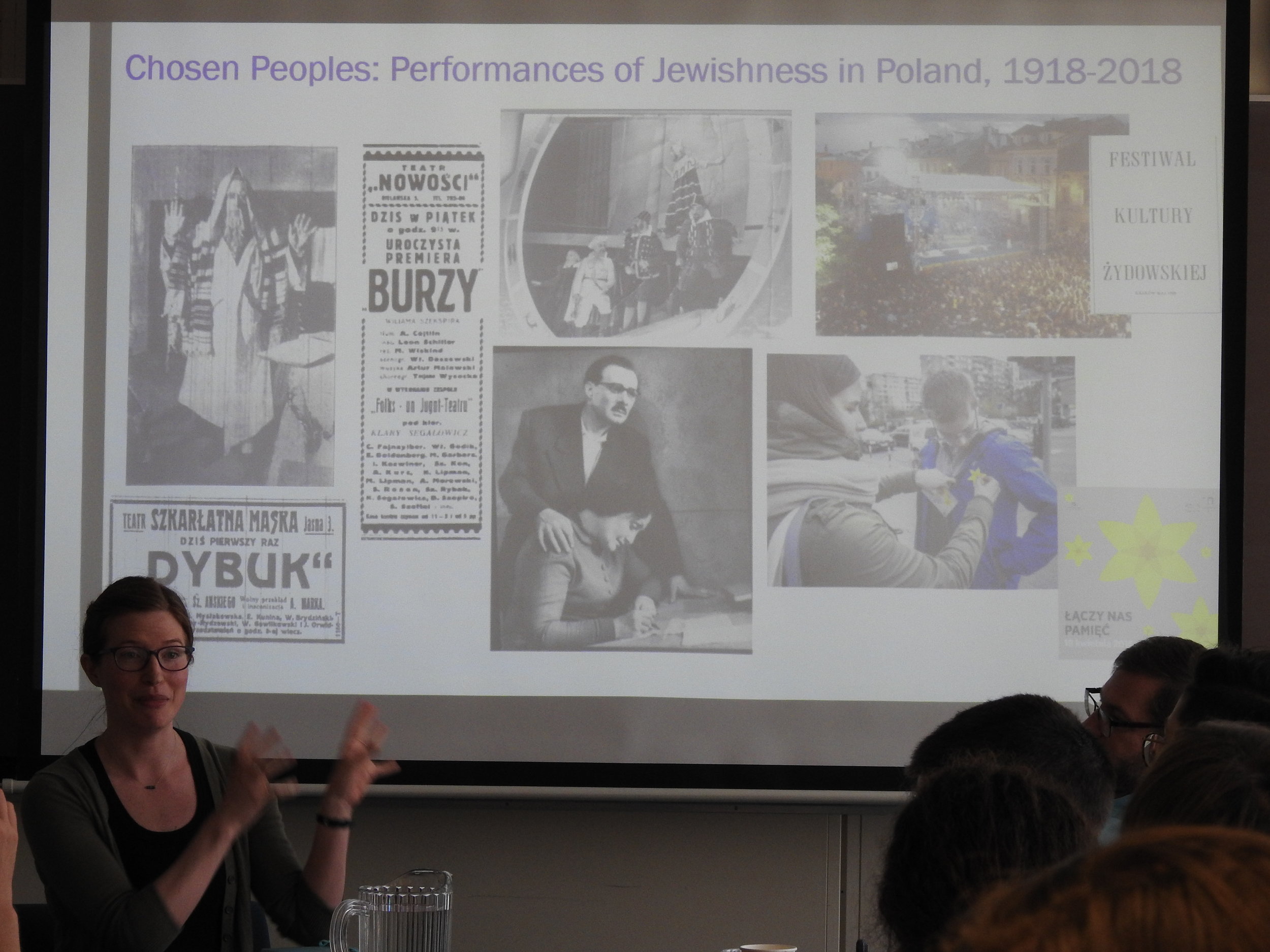
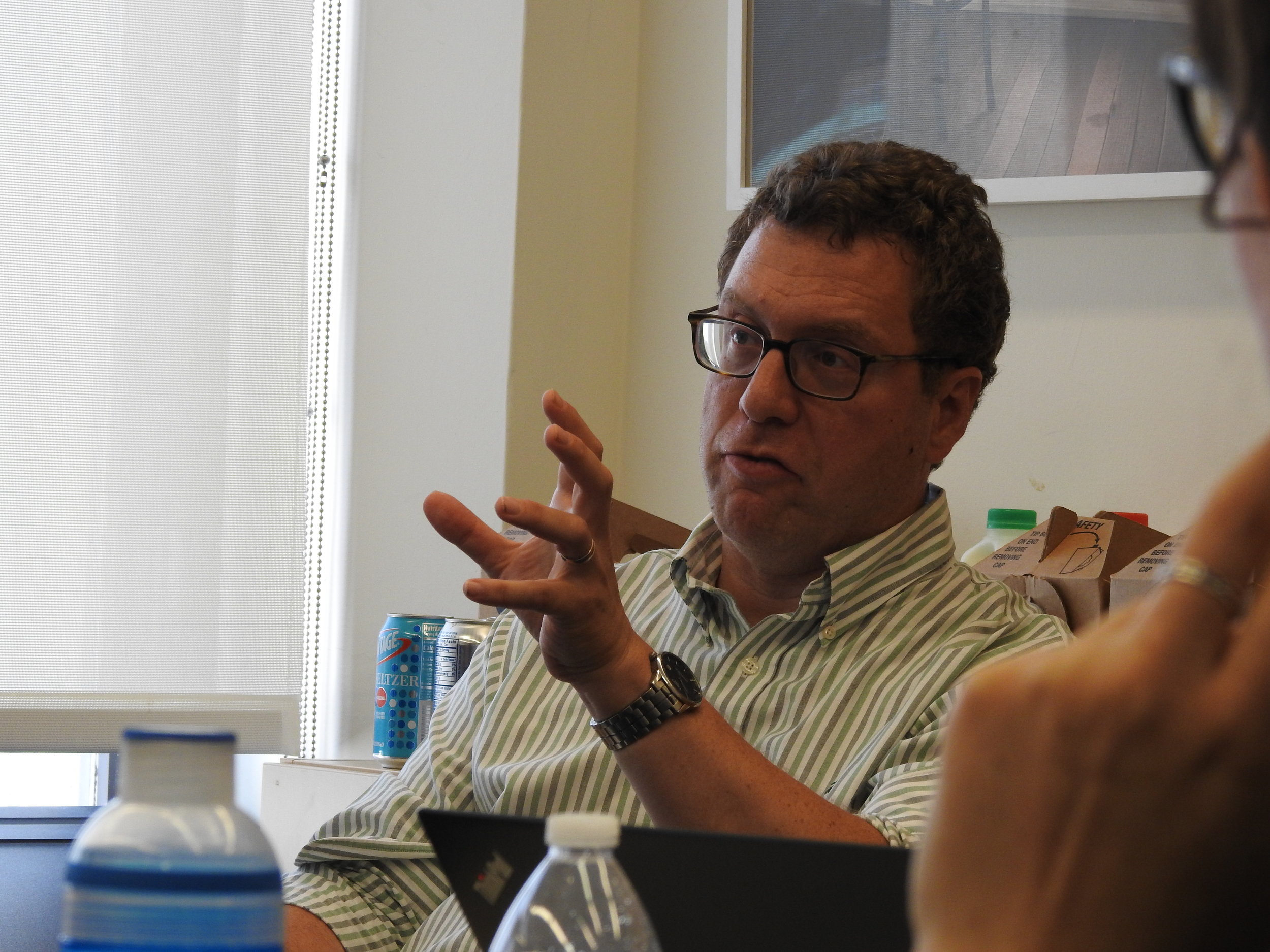
Summer Highlights at IIJS
20 Undergraduate Israel Fellows took Hebrew language courses; interned at various tech companies; and conducted groundbreaking medical research - all while learning about the diversity and complexity of Israeli society.
Jewish Studies Ph.D. students utilized Institute travel funds to explore archives; present papers; and gain pedagogical skills to become the next leaders in the field.
The Institute co-hosted the Nevzlin Conference. The conference brings together current Ph.D. students to workshop their dissertations and receive mentoring from leaders in the field. Prof. Rebecca Kobrin and Prof. Jeremy Dauber participated in the workshops along with scholars from Israel.
IIJS co-sponsored a conference at the POLIN Museum of the History of Polish Jews titled "The Activities of the Joint in Poland and Neighboring Countries 1945-1989: Reality and Perceptions.”
Faculty in the News: The Washington Post and Jewish Veganism and Vegetarianism
"This week, as we mark the 25th anniversary of the greatest single loss of Jewish lives outside Israel since the Holocaust, it is imperative that we grapple with anti-Semitism as a global issue. An ideology that combines racism and right-wing politics, anti-Semitism has long pervaded Europe and the United States - and South America." Read more in the Washington Post op-ed by Prof. Rebecca Kobrin and Prof. Federico Finchelstein (The New School).
Prof. Beth Berkowitz’s essay “The Slipperiness of Animal Suffering: Revisiting the Talmud’s Classic Treatment” was published in Jewish Veganism and Vegetarianism.
The History of the Institute
Solomon Wiener (Undergraduate Israel Fellow '18, CC '19) writes about the history of the Institute in The Current, a student journal of contemporary politics, culture, and Jewish affairs at Columbia University.
Baron New Voices in Jewish Studies Award
We are delighted to announce that the winners of the Baron New Voices in Jewish Studies Award are Elazar Ben Lulu (Ph.D., Ben Gurion University) and Alon Tam (Ph.D., University of Pennsylvania). Elazar Ben Lulu works on issues of gender and ritual in Israeli Reform congregations; his research lies at the intersection of social sciences and Jewish Studies. Alon Tam’s work investigates the urban, social, and political history of Cairo’s coffeehouses, from the mid-19th to the early 20th century. Both recipients demonstrate the impressive vibrancy of scholarship being done by the next generation of Jewish Studies scholars. We will be welcoming them to our campuses in the coming academic year.
2019 Rabin-Shvidler Joint Post-Doctoral Fellowship in Jewish Studies
Columbia University’s Institute for Israel and Jewish Studies and Fordham University’s Center for Jewish Studies are delighted to announce that the joint post-doctoral fellowship in Jewish Studies for the 2019-2020 academic year will be held by Ayelet Brinn (Ph.D., University of Pennsylvania, 2019), whose dissertation on gender and the press examines the role "women's content" in American Yiddish press played in the history of the press, design, and format, and the Americanization of immigrant Jews. Her presence will add new dimensions to the teaching of modern Jewish history across a broad spectrum of interests. We look forward to welcoming her to our growing joint community of scholars.
This fellowship has been made possible by the Stanley A. and Barbara B. Rabin Postdoctoral Fellowship Fund at Columbia University and the Eugene Shvidler Gift Fund at Fordham University.































